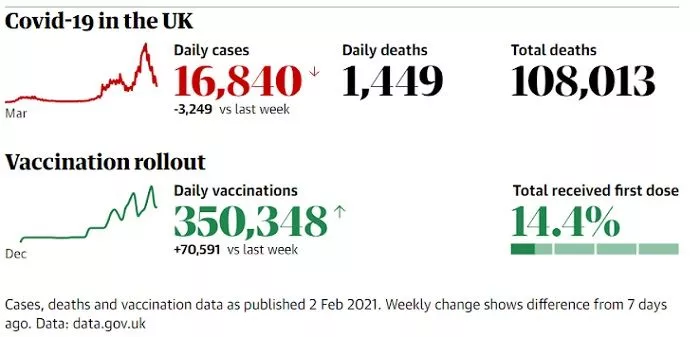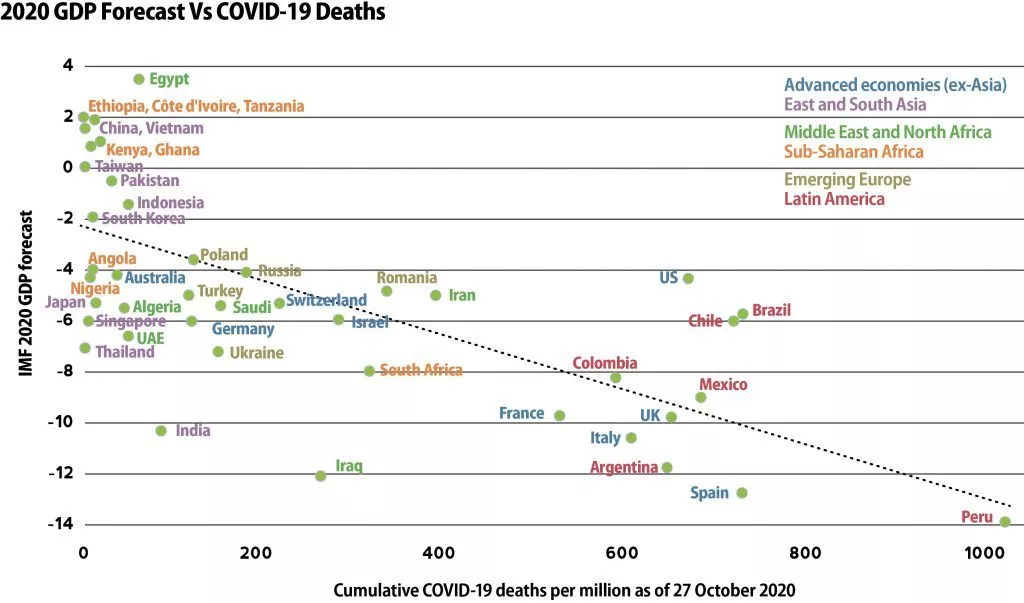While there are several grounds for this optimism, these are the four main reasons for the positive outlook in 2021

It’s easy to remain cynical after a devastating 2020. Numerous lockdowns, industry closures, rising unemployment, travel restrictions, and lives lost from COVID-19 drove several countries into recession. Although the world is still grappling with this pandemic, we can finally see some light at the end of this tunnel. This year is especially crucial for our collective healing and recovery.
The prevailing sentiment is that the worst is behind us and things can only get better from here.
Vaccination programmes underway
The first major cause for celebration is the availability of vaccines to stop the spread of the novel coronavirus. With necessary funding and the full support of governments, vaccines were developed and made available in record time. Viable COVID-19 vaccines include Pfizer with a 95 per cent effectiveness, Moderna with 94 per cent, AstraZeneca and Oxford at 90 per cent. Several countries have begun approving vaccines for emergency use, while others have started vaccinations.

The UK was the first country to start the vaccinations in December last year. The timetable for the largest vaccination programme in British history includes vaccinating the most vulnerable groups by late February and every adult by September 2021.
Advances in technology
Technology emerged as a shining light during the bleakness of quarantine at the peak of the pandemic. With businesses closed and industries shut down, digital networks became crucial in connecting people whether for work or personal communication. E-commerce exhibited tremendous growth as home-bound consumers turned to online shopping and food deliveries for retail therapy and essentials.
Offices were forced to embrace remote work and take advantage of tools like Zoom and cloud-based applications to communicate and collaborate. Mobile applications proved effective for contact tracing in the health industry, while automation and tracking innovations brought efficiency to logistics and supply chain monitoring. The real estate industry resorted to virtual viewings for property investors. Other innovations kept businesses afloat.
The shift from traditional workplaces to remote work has likewise accelerated the growth in digital technology to keep up with the growing reliance on online platforms. At the same time, issues of security and privacy are constantly being reviewed and strengthened to meet the standards of various industries.
It’s clear that information technology will continue to influence industry growth going forward and remote or flexible work arrangements will become the norm in a post-pandemic world. VR and AR, in particular, are emerging technologies with promising potential applications across various industries.
Stabilising socio-political climate
The world has changed so much in the past year, including the socio-political sphere. Most notably, several countries elected news presidents and prime ministers. While the new leadership’s impact remains to be seen, certain countries are moving towards stability or a unifying stance. In New Zealand, the popular Prime Minister Jacinda Ardern was re-elected through a landslide victory due to the excellent pandemic response. The United States bid farewell to the tumultuous Trump administration and welcomed Joe Biden as the country’s 46th president. The United Kingdom grappled with Brexit in 2020, but with the end of the transition this year, most of the uncertainty surrounding negotiations will at least be clarified in 2021.
There are a lot of lessons learned for government’s worldwide. Despite the ongoing polarisation, the prevailing sentiment is a hopeful one as elected leaders are expected to strengthen their country’s disaster planning and pandemic response to mitigate further losses.
Markets bouncing back
Vaccinations, technological advancements, and stability will ultimately fuel market recovery and growth. The pace of economic growth and return to pre-COVID figures per country will depend on policy choices going forward.
In addition, Deloitte’s research shows that the country’s rate of COVID-19 infections/fatalities is correlated to the negative impact on the GDP. This means countries like China and Vietnam which recorded fewer COVID-19 fatalities will likely outpace the UK and US which suffered more during the pandemic.

At the end of 2020, China’s GDP was at 6.5 per cent above end-2019 levels. In contrast, Europe and the US remained below pre-pandemic levels. Despite these figures, Deloitte forecasts a positive growth in the United State’s GDP this year at 3.1 per cent–just below pre-COVID growth figures. Meanwhile, British GDP is pegged below pre-COVID levels between 5.9 per cent and 11.5 per cent with a gradual increase in GDP over the next five years.
Vaccine availability and vaccine rollouts are already having a positive effect on markets. Shares of British Airways owner International Airlines Group grew 12.2 per cent after a 40 per cent increase following Pfizer’s vaccine announcement. United Airlines shares rose by as much as 8.6 per cent, American Airlines and Delta likewise both gained about 6 per cent. Tourism ads are once again running and countries like Singapore have created business bubbles to stimulate economic growth.
All these market movements signify hope for the eventual return to normalcy and that the end of the pandemic is fast approaching. The goal is not to adjust to a new normal, instead, the aim should be a better normal with infrastructure and systems that can respond better to present and future challenges to our way of life.
